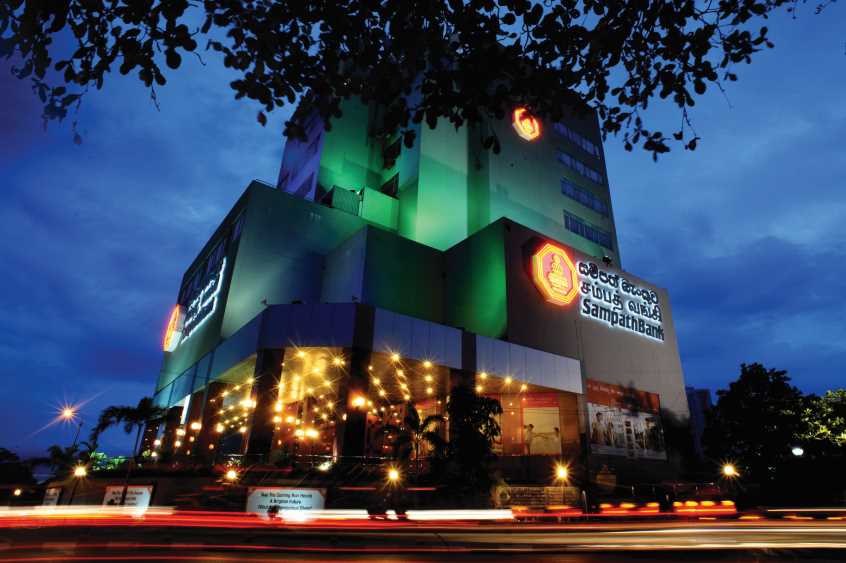
Sampath Bank was recently recognized as Sri Lanka’s best bank for social responsibility by Asiamoney and Market Leader CSR from Euromoney magazines. Both lauded Sampath Bank’s innovative approach and the impact of its successful social outreach programs, and wrote approvingly of how the Bank adapted to difficult circumstances. Euromoney Market Leaders makes an independent appraisal of the leading financial service providers across key banking categories in each market. The result of a rigorous assessment process, these rankings are part of Euromoney magazine’s awards programs that recognize financial institutions for their accomplishments and capabilities within a 12-month period against the backdrop of global events. In the confined world of international banking and finance, Euromoney and Asiamoney awards are the coin of the realm.
Both magazines noted in separate statements that as working capital dwindled during the coronavirus pandemic, Sampath supersized its ‘diriya’ loan scheme for small and medium-sized enterprises, prioritizing green lending. It also scaled up sustainable lending to help Sri Lanka reach one of its environmental objectives: to ensure that by 2030, 70% of the country’s energy will come from renewable sources. Sampath Bank helped support Sri Lanka’s import/export industry, prioritizing prudent management of its foreign currency position. The Bank acted pre-emptively to procure more foreign currency early in the year, and ensured uninterrupted inflows of essential foods and pharmaceuticals. Facing unprecedented, the Bank responded with out-of-the-box thinking and novel solutions. Heeding the Central Bank’s directive to reschedule existing non-performing loans of pandemic-affected businesses, Sampath Bank negotiated mutually acceptable repayment plans. It also distributed with fees for returned cheques, stopped cheques and late payments. When the second wave of the pandemic hit in 2021, Sampath Bank restructured some loans, offering customized deferment plans to help corporate customers ease out of their financial crunch.
Sampath Bank also expanded its ‘Waweta Jeewayak’ tank restoration initiative and its ‘Sampath Saviya’ entrepreneurship development program, and donated medical equipment to help state hospitals cope with COVID outbreaks. Both Euromoney and Asiamoney also commended Sampath Bank for strengthening its core business, noting that the Bank balanced growth, risks and costs: Net interest income rose 23.2% from the previous year and after-tax profit increased 55.2%. The Bank’s efforts to pare down operating costs paid off as well: its cost-to-income ratio dropped to 35.3% from the previous year’s 43.5%. The magazines credited much of Sampath Bank’s outstanding performance to its active monitoring of impairment risks and its efforts to absorb losses during a perfect storm of health, socioeconomic and political crises. “It is an impressive achievement,” they concluded.
“I was delighted to hear that both Euromoney and Asiamoney magazines recognized Sampath Bank as Sri Lanka’s Market Leader CSR and Best Bank for Corporate and Social Responsibility respectively,” said Nanda Fernando – Managing Director, Sampath Bank PLC. “Their editorial boards gave us these awards for our resilience in the face of seemingly intractable problems, and for the way we innovated our way through a very tough year. We are not over the problems of 2022, but we face the future with confidence.”
Sampath Bank is a 100% local bank that has deeply rooted itself in the lives of the people of Sri Lanka. Established in 1987, the bank has become a state-of-the-art financial institution that continues to be a market leader today thanks to its constant innovation and customer focused approach to business. It has introduced many firsts to the Sri Lankan banking sector including introducing ATMs to Sri Lanka, extended banking hours, slip-less banking and adaptation of block-chain technology to name a few. As part of its visionary 2022 approach, the bank is steadily transforming itself into a ‘tech company engaged in banking,’ from the traditional approach of a bank adopting technology.



